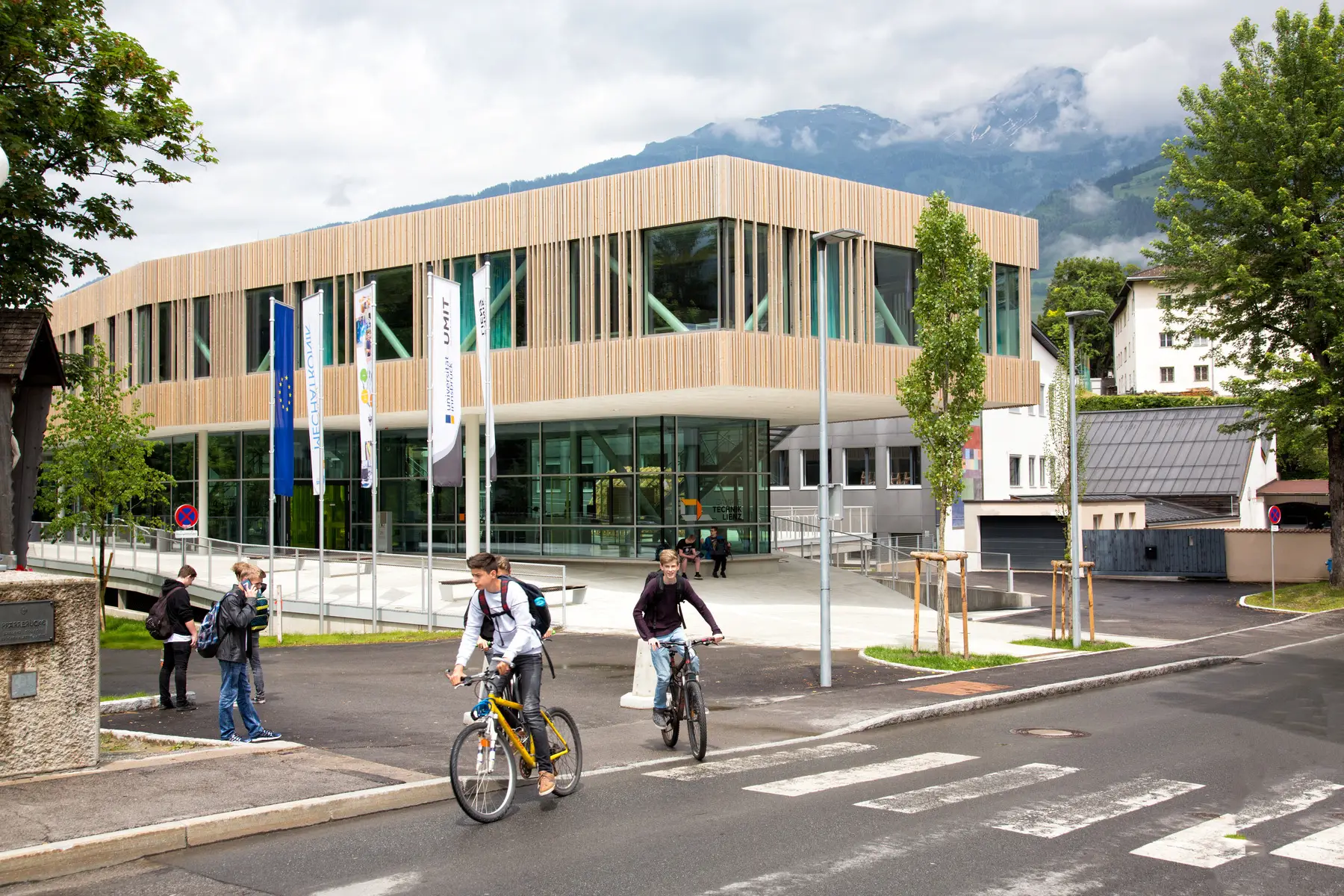Whether you are moving to Austria to study or begin your dream job, you will need to be well versed in getting your qualifications recognized. Depending on your situation, you may also need to arrange a work permit or explore the various universities and specialist schools on offer in Austria. Either way, living and studying in a country with such stunning natural beauty and rich historic culture is sure to satisfy your eyes and ears.
But before you start daydreaming about your days in Austria, here is everything you need to know about getting your qualifications recognized and transferred in Austria, including the following:
- Degrees and qualifications in Austria
- Who needs to get qualifications transferred in Austria?
- How to get your high school diploma recognized in Austria
- How to get your university degree or secondary education diploma recognized in Austria
- Where to apply to get qualifications transferred in Austria
- Professional and vocational qualifications in Austria
- What to do if your diploma or qualifications are not recognized in Austria
- Useful resources
Sirelo
It’s no secret that moving abroad can be stressful. Sirelo’s team of removal advisers is here to help. They provide five free quotes from international shipping companies so you can find the best options at the best prices. Take the stress out of your relocation to Austria with Sirelo.
Degrees and qualifications in Austria
Universities in Austria specifically follow the Bologna or European Credit Transfer System (ECTS); a Europe-wide scheme for recording students’ past and future achievements. Therefore, if you complete your studies in Austria and wish to live and work abroad in other European countries, your qualifications will be recognized. To study at a university in Austria, you will need to hold a Matura; this is officially known as Reifeprüfung in the country. Essentially, this is the secondary school leaving qualification exam.

The traditional Austrian equivalent to the Master’s degree is the Diplomstudium or Magister qualification. Usually, master’s-level diploma programs cover undergraduate and postgraduate degrees. However, these programs are now being phased out in place of more modern postgraduate master’s degrees which you can do after completing a three-year Bachelors’s degree.
In general, Austrian universities differentiate between doctorates (Doktorate) and Ph.D.s. Essentially, Ph.D. programs are open to a university’s own research associates. Doctorate programs, meanwhile, are available to students who are not employees at the university.
Types of qualification recognition in Austria
Essentially, there are four types of qualification recognition in Austria, as follows:
- Professional recognition (professional accreditation) of regulated professions
- Nostrification of college and school-leaving certificates
- Validation of academic degrees and diplomas for the purposes of exercising a profession
- Accreditation of skilled trade certificates
Who needs to get qualifications transferred in Austria?
Essentially, if you have a degree from a university in the EU, an EEA country, or Switzerland, you don’t need to seek recognition – or nostrification – for it in Austria. However, if you have a university degree from a country other than these, you may need nostrification.

Notably, there are no uniform rules in Austria when it comes to the formal recognition of qualifications from abroad. Therefore, the process will depend on where you gained the qualification. In the realm of regulated professions, however, professional accreditation is a prerequisite to working in certain professions in Austria. This includes nurses, midwives, physicians, dentists, pharmacists, architects, and veterinarians.
How to get your high school diploma recognized in Austria
Essentially, school-leaving certificates from a high school abroad and school-leaving certificates from Austria must marry up before you can begin any further education in Austria. In many cases, the equivalence of school-leaving certificates is based on inter-governmental agreements. Countries such as Italy, Australia, and the UK, for example, have these agreements in place. Austria, for instance, considers A-levels from the UK as equivalent to the Austrian Matura. Here is a full list of countries with school leaving certificates that are equivalent to Austria’s.

Generally, the university you are applying to is the best place to obtain this recognition. Additionally, the Austrian Federal Ministry of Education has a free-of-charge website where you can submit your application.
How to get your university degree or secondary education diploma recognized in Austria
Essentially, the reason for the recognition of foreign academic diplomas and degrees is to ensure compatibility with Austrian degrees. However, you must also be able to show that there is a need for this formal recognition. Therefore, if you don’t have evidence of a need, you will not be able to get the validation. Notably, recognition is not necessary for EU university degrees; this includes those that are statutorily regulated, such as lawyer, teacher, and civil engineer degrees.
Applying online
The National Academic Recognition Information Centre ENIC-NARIC AUSTRIA at the Federal Ministry for Digital, Business, and Enterprise (BMDW) is the first contact point for all questions regarding the recognition of international university diplomas in Austria. You can submit your application online through the Recognition Information Application System (AAIS). Typically, an assessment of a foreign higher education qualification costs as much as €200. However, this validation is often sufficient for you to use in the Austrian labor market.
Additionally, you can apply to a public university, the University of Applied Sciences (Fachhochschule), or the University College of Teacher Education (Pädagogische Hochschule) for nostrification; as long as there is a comparable degree within Austria. This usually takes around three months to complete. The university will then let you know its decision and if you need to take any supplementary examinations.
If you don’t need validation for your degree, but would still like some documentation to support your qualifications, you can apply online and pay for an evaluation report. Typically, these contain information on the training institution, basic classification (the level and scope of training, etc.), and correlation with Austrian academic degrees. The cost is usually between €150 and €200 depending on how many qualifications are on the report.
Where to apply to get qualifications transferred in Austria
Generally speaking, Austria is keen to aid foreign workers by validating their qualifications and putting their skills to use. Therefore, there are four AST contact points responsible for the recognition, assessment, and transfer of qualifications from other countries. These are located in the following:
- Vienna, AST Lower Austria, and Northern Burgenland and the coordination of contact points under the auspices of the Counselling Centre for Immigrants in Vienna
- Upper Austria and Salzburg at migrare – Center for Immigrants in Upper Austria, which is located in Linz
- Styria, Carinthia, and Southern Burgenland at ZEBRA – Intercultural Centre of Counselling and Therapy, located in Graz and
- Tyrol and Vorarlberg at ZeMiT – Centre for Migrants in Tyrol, located in Innsbruck
Furthermore, weekly consultation days take place in all other Austrian state capitals. Not only is Austria making it easy to achieve validation, but the country also acts in line with the Recognition and Assessment of Qualifications Act (AuBG) to make sure that the process is available completely free of charge. Additionally, this service provides information on follow-up counseling options and further education offerings if formal recognition of qualifications is not possible. Essentially, the cost-free services of the AST are available to anyone living in Austria with qualifications from abroad.
Professional and vocational qualifications in Austria
Similar to other EU nations, Austria has a National Qualifications Framework (NQF). This is for both general and higher education as well as vocational education and training. There is also the European Credit System for Vocational Education and Training (ECVET). Essentially, this is a credit system for knowledge, skills, and abilities.

The application office you will need depends on whether you did the training or degrees in the European Union (EU), the European Economic Area (EEA), Switzerland, or a third country. Fortunately, the Recognition Guide helps you find the right application office or advice center. It also provides further information to suit your personal needs.
Conveniently, some degree certificates and diplomas from abroad may also receive accreditation online for the Austrian final apprenticeship examination. Often, if there are differences in the education system, there is the possibility of completing the apprenticeship with supplementary examinations in Austria. Luckily, there are professional training agreements in place with Germany, Hungary, and South Tyrol, which make accreditation easier. Here is the full list of regulated professions that require professional accreditation to work in Austria.
What to do if your diploma or qualifications are not recognized in Austria
Generally, if nostrification is not possible because your course was too different from the Austrian one, you may still apply for the course. The higher education institution of your choice simply needs to check that your studies have given you suitable preparation for further study.
Fortunately, the new Austrian Recognition and Assessment Act (AuBG) introduces changes that aid those who are unable to provide certificates or other evidence of qualifications. This, in particular, aims to help asylum seekers enter the labor market. If this is the case, the best course of action is to contact one of the government advice centers to discuss your situation. These are free of charge.
Useful resources
- Professional Recognition Austria – offers advice and a service for validating qualifications
- Work in Austria – a branch of the Austrian Business Agency that offers a wealth of knowledge on working in the country
- Berufsanerkennung – provides an overview of the procedure of formal recognition in Austria





